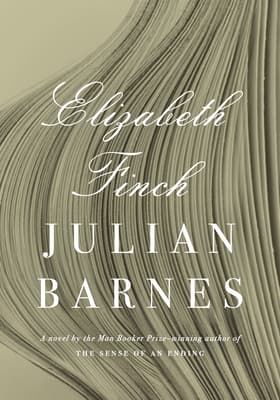
Book Review Summary: Elizabeth Finch
Introduction
"Elizabeth Finch" is a compact and thought-provoking novel by the renowned author Julian Barnes. This book explores the complexities of love, friendship, and biography through the character of Professor Elizabeth Finch. The narrator, Neil, takes a class on Culture and Civilization taught by Finch, and their intellectual relationship transcends beyond the course. As Neil delves deeper into Finch's papers, he uncovers her fascination with Julian the Apostate, leading him to ponder the impact of history on the present and the challenges of understanding people through their past.
About Julian Barnes
Julian Barnes is a contemporary English writer known for his postmodernist approach to literature. He has been shortlisted three times for the prestigious Man Booker Prize and has won the prize for his novel "The Sense of an Ending." Barnes' writing career spans over four decades, and he has produced a diverse range of works, including crime fiction under the pseudonym Dan Kavanagh. His ability to explore unconventional forms of love and his compelling storytelling style have earned him critical acclaim and a dedicated following.
Analysis of Views
-
Engaging and Thought-Provoking: Readers praise "Elizabeth Finch" for its ability to engage them intellectually. The book's exploration of the complexities of love, friendship, and history resonated with many readers, who found it thought-provoking and challenging. Barnes' writing style, which incorporates both fictional and nonfictional elements, was appreciated for its depth and complexity.
-
Complex Relationships: The relationship between Neil and Elizabeth Finch is a central focus of the novel. Readers appreciated the nuances of their relationship, which remained platonic yet deeply meaningful. The portrayal of their intellectual connection and the impact it had on Neil's life was seen as a strength of the book.
-
Historical Depth: Barnes' incorporation of historical elements, particularly his exploration of Julian the Apostate, was met with mixed reactions from readers. While some found it fascinating and enlightening, others felt that it detracted from the main narrative and became too dry. The inclusion of historical details added depth to the book, but it may not appeal to all readers.
-
Unreliable Narrator: Neil's perspective as an unreliable narrator adds an intriguing layer to the story. Readers appreciated the uncertainty surrounding Neil's understanding of Elizabeth Finch and his attempts to uncover her true nature. This element added complexity to the narrative and kept readers engaged.
-
Philosophical Reflections: The book delves into philosophical questions surrounding truth, memory, and the nature of relationships. Readers appreciated the exploration of these themes, which added depth to the overall narrative. The book encourages readers to reflect on their own perceptions and beliefs about history and human connections.
Reasons for Recommendation
-
Intellectual Stimulation: "Elizabeth Finch" offers readers an intellectually stimulating experience. Barnes' writing style challenges readers to think critically about history, love, and relationships, making it a rewarding read for those seeking intellectual depth in their fiction.
-
Engaging Characters: The characters in the book, particularly Elizabeth Finch, are well-developed and compelling. Readers appreciate the complexity of their relationships and find themselves invested in their journey. The exploration of platonic love adds a unique dimension to the narrative, making it stand out from other books in this genre.
-
Philosophical Reflections: The philosophical reflections presented in the book resonate with readers who appreciate intellectual exploration. Barnes' exploration of truth, memory, and relationships offers readers food for thought and encourages them to question their own beliefs and perceptions. This aspect of the book makes it a valuable addition to any reader's collection.
Reasons for Not Recommendation
-
Historical Dryness: Some readers found the historical section of the book dry and excessively detailed. While Barnes' incorporation of historical elements adds depth to the narrative, it may not appeal to those who prefer a more straightforward storytelling approach. The inclusion of lengthy historical discussions may deter some readers from fully engaging with the book.
-
Unconventional Structure: The unconventional structure of "Elizabeth Finch" may not be appealing to all readers. The use of an unreliable narrator and incorporation of historical elements into the main narrative may be seen as disjointed or confusing by some readers. While this experimental approach adds complexity to the storytelling, it may not resonate with everyone.
Conclusion
"Elizabeth Finch" by Julian Barnes is a compact yet intellectually stimulating novel that explores complex relationships, love, friendship, and history through its central character, Professor Elizabeth Finch. The book offers readers an engaging narrative with well-developed characters and thought-provoking philosophical reflections. While some readers found certain aspects of the book dry or unconventional, others appreciated its intellectual depth and found it a rewarding read. Overall, "Elizabeth Finch" is a book that challenges readers to reflect on their own perceptions and beliefs about history and human connections, making it a valuable addition to any literary collection.